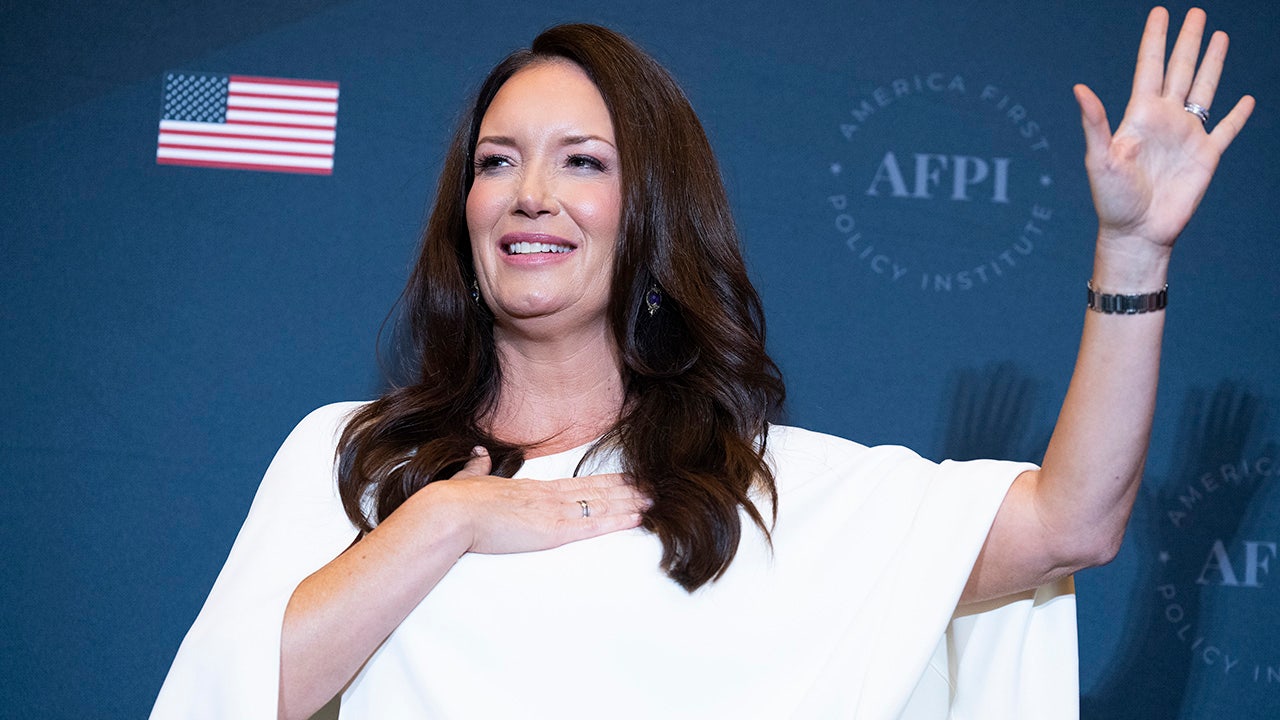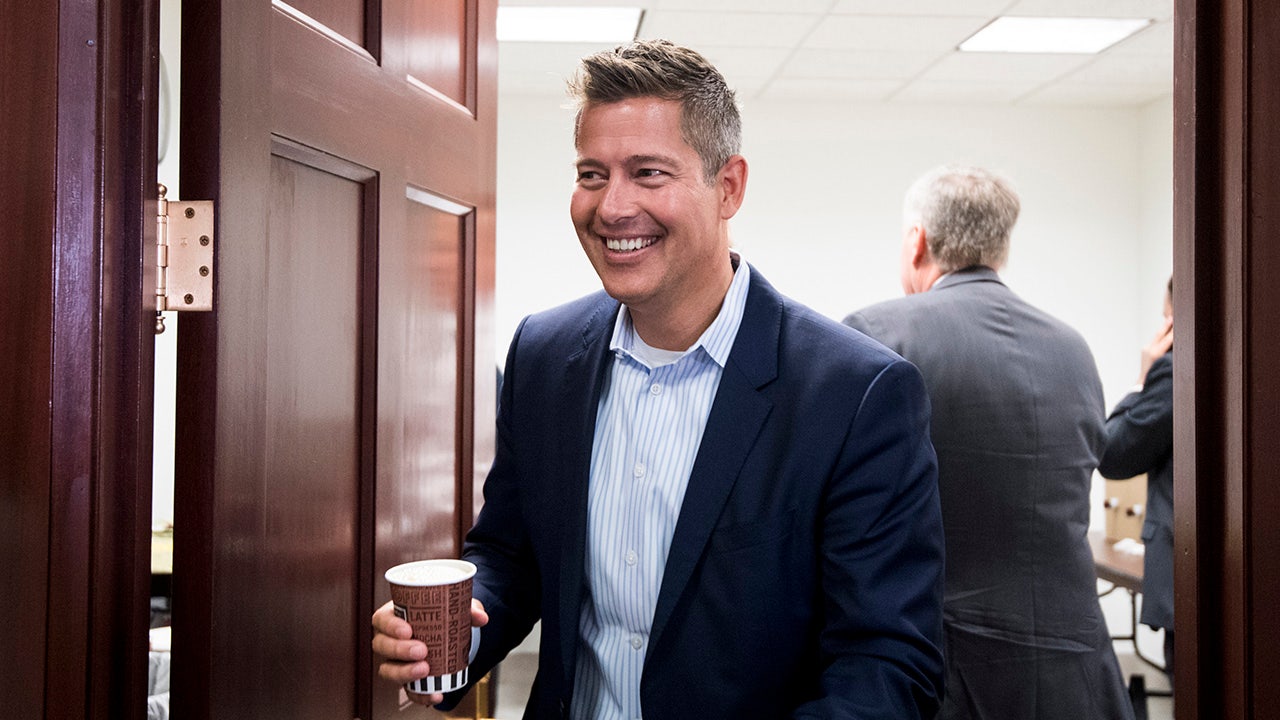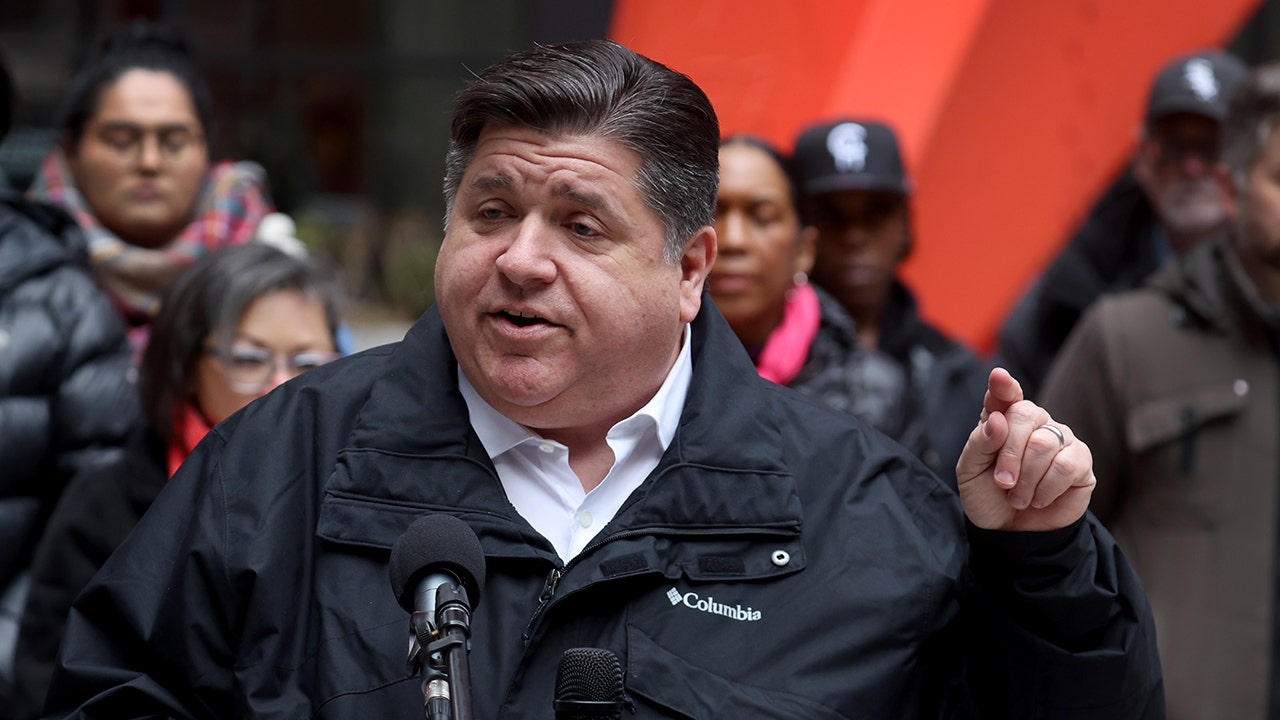Speaker Mike Johnson needed to convince former President Donald Trump that a shutdown could hurt their party on Election Day even as the Republican presidential nominee was itching for a fight with Democrats over cracking down on non-citizens voting in elections.
So in a recent sit-down at Mar-a-Lago, Johnson showed Trump polling warning a shutdown could zap the GOP’s House majority, two sources close to the speaker said. Then, to drive home the point, Johnson pulled out a set of photographs of the GOP incumbents – many of whom Trump liked – who could lose.
It’s a testament to just how hard Johnson had to fight to avoid a colossal political firestorm on the eve of an election that will determine not just who controls the House, but Johnson’s own place in leadership.
“Getting out of town as quickly as possible was the right thing to do. I’m very supportive of what the speaker did,” said the House GOP’s spending chief, Rep. Tom Cole of Oklahoma, who was among many Republicans privately urging Johnson to ignore Trump and avoid a shutdown at all costs just weeks from Election Day.
But behind the scenes, Johnson was also working with conservatives on a Trump-approved funding strategy: Even as it was clear the speaker would need to pass a bill with Democrats, Johnson was privately trying to add partisan immigration language — though GOP centrists ultimately objected, according to two Republicans familiar with the discussions. He was phoning his members about that plan even hours before the bipartisan vote.
Johnson’s success in defusing Trump’s shutdown threat while protecting dozens of vulnerable Republicans saved his gavel — but only for now. For Johnson, the next three months will either unlock his future as a second-term speaker or could see an end to his brief tenure atop the GOP conference.
And with his future on the line, Johnson will spend every day until November 5 trying to protect, and possibly even grow, his party’s majority. He and other GOP leaders plan to barnstorm swing districts across the country, from the New York suburbs to California’s Central Coast, as they stump for endangered incumbents and raise cash to counter Vice President Kamala Harris’ enormous fundraising machine. Johnson will kick off the month with fundraisers in Manhattan on Monday before a nation-wide swing that will include about one-third of his time in either New York or California, according to his political team.
The next time House Republicans are together, the election will be over and it will be time for their own internal leadership race. If Republicans keep the House and especially if they grow their majority, Johnson will have a compelling case to make to keep his job. But regardless of the election, Johnson is staring down a slew of political landmines immediately after the election that could make it impossible to actually win the job come January
“We are going to be right back in the same pickle. It is going to get a lot worse the next thing around depending on how the election goes,” one Republican member said, speaking on the condition of anonymity to freely discuss the speaker’s future. “There are a lot of things that are going to get piled up.”
Johnson and his leadership team will need to keep the government open and deal with an early 2025 debt limit deadline. Congress is also facing deadlines on the farm bill, a massive five-year package of funding for agriculture and nutrition programs, and the National Defense Authorization Act, a landmark defense policy bill, and will likely need to supply additional funding for natural disasters.
Johnson, who was a little-known figure for many in the conference before he catapulted into leadership, has built a strong rapport with rank-and-file members and gained respect from even some early skeptics by the way he has weathered fight after fight.
“I think he’s done a good job of basically not throwing his hands up in the air and not flipping somebody the bird,” Rep. Mark Amodei, a Republican from Nevada, told CNN.
But if Republicans lose the House, many members acknowledge that Johnson would struggle to win a party-wide contest to remain GOP leader. Instead, many Republicans are eying Johnson’s deputies like House Majority Leader Steve Scalise and House Majority Whip Tom Emmer, as well as Trump ally Jim Jordan of Ohio. Then there’s the wildcard of House Conference Chairwoman Elise Stefanik, a New York Republican congresswoman whose name is frequently discussed for a position in a potential Trump Cabinet but would likely stay in the House if Trump doesn’t win.
“Then you look around, if not him and then who? Then it gets even more muddled and difficult,” Rep. Chuck Fleischmann, a Republican from Tennessee, said. “I think he will be in a very optimal position if we retain and add to our margins in the House.”
As lawmakers return home to campaign, many Republicans are privately frustrated they have little to tout from their GOP majority. Instead of passing legislation addressing party priorities, the House has careened from one funding crisis to another, as members of the far right wing set their sights on ousting House Speaker Kevin McCarthy and then, in subsequent months, Johnson after he worked with Democrats to pass billions in aid for besieged Ukraine.
Key committees failed to make a compelling-enough case to members after months of investigations and hearings to move ahead with impeaching President Joe Biden, a gambit that lost relevance after Biden announced in July he was stepping out of the presidential race.
“It seems like for the last year, Mike’s speakership has been about buying time ‘til the next milestone, whatever that milestone is,” one GOP member told CNN. “There is a sigh of relief, we can go home and campaign. We don’t have to defend a shutdown. We can resume our campaigns and get past that but eventually you kind of sober up and figure out once the election is over you gotta go get something done.”
Many Republicans have already begun plotting how to avoid a repeat of the last two years of dysfunction and drama. House GOP lawmakers are privately starting to discuss major changes to their internal rules to make it easier for future Republican leaders. A top target for many members: nuking the rule that allows just a single member to oust a speaker.
“We have to have a strong leader and you have to have someone in place who short of committing a crime or loss of mental faculties is not held to this motion to vacate as political theater,” said Rep. David Joyce, a Republican from Ohio.
Republicans also want to prevent a repeat of the dramatic 15-round speaker fight on the House floor last year, which led to major delays in establishing committees and getting Congress to work. Several members are discussing a way to lock in a speaker by forcing any candidate to prove they can win the 218 votes needed to win on the floor in January, and not just a simple majority of their own conference.
Others are seriously talking about how to exact revenge against ultraconservative Freedom Caucus members who have been blocking the GOP’s agenda on the floor or in the speaker-controlled Rules Committee. Lawmakers who vote against party priorities, they argue, should be stripped of plum committee spots.
But for Johnson, any push to change the GOP rules could jeopardize his ability to win votes in the conference — especially if the majority is as slim as the one he’s contending with now.
Read the full article here

















